Discover this Healthy Mediterranean Diet 101: What Is the Mediterranean Diet
When you hear “Mediterranean food,” you may think of Greek lamb chops or Italian pizza and pasta. However, these dishes don't belong to the “Mediterranean diet.”
If you're looking for a healthy way of eating that's good for your heart, incredibly flavorful, and backed by research, this diet may be the perfect fit for you.
Read on to know more about this dietary pattern.
RELATED: Keto Paleo Diet | Why We Should Do This and Foods to Eat
Mediterranean Diet 101: Everything You Need to Know About the Mediterranean Diet

How Did the Mediterranean Diet Originate?

The Mediterranean diet is from the eating pattern of settlers in Southern Europe around 1960.
The locals of Italy, Greece, and Spain had traditional foods. The foundation of their diet was the following:
- Beans
- Olive oil
- Vegetables
- Seafood
- Fruits
- Nuts
- Dairy
- Herbs and spices
- Whole grains
They even drank red wine!
Their cases of chronic illnesses were low, and their life expectancy was high. Surprisingly, they were generally healthy, despite having limited health services.
Eventually, the rate of cardiovascular disease wasn't as high in the Mediterranean region as it was in the United States.
Since then, plenty of research has revealed that the Mediterranean diet can boost your heart health and reduce heart disease risk factors.
What Are the Basics of a Mediterranean Diet?
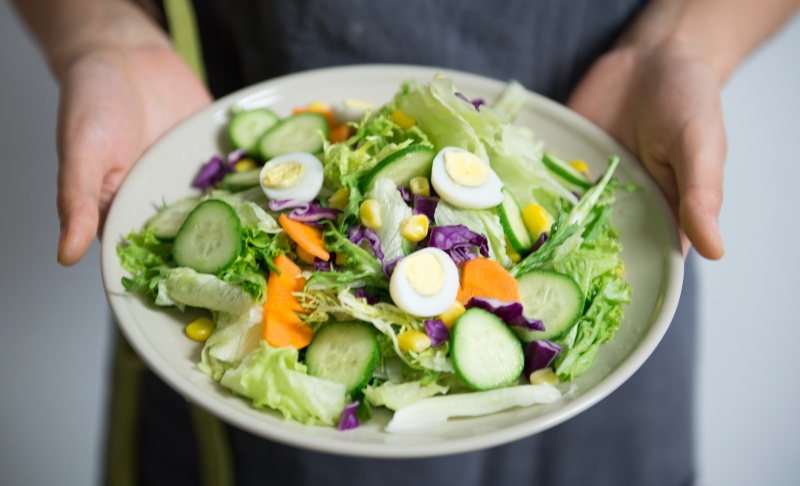
The Mediterranean diet has no exact meal pattern that you must strictly follow. What's essential is you eat the same way that the Mediterranean race used to.
Add generous servings of fresh produce to your diet, such as:
- Whole grains, including rye, buckwheat, whole oats, barley, whole wheat, brown rice, corn, whole-grain bread, and whole-grain pasta
- Fruits, like oranges, dates, peaches, pears, figs, apples, grapes, melons, and bananas
- Vegetables such as kale, cauliflower, cucumbers, broccoli, garlic, spinach, carrots, tomatoes, onions, and Brussels sprouts
- Tubers, including turnips, potatoes, and yams
- Legumes, like lentils, chickpeas, pulses, beans, and peanuts
- Herbs and spices, such as mint, nutmeg, sea salt, rosemary, cinnamon, pepper, basil, sage, and turmeric
- Healthy fats, including olives, olive oil, and avocados
- Nuts and seeds, like macadamia, sunflower seeds, walnuts, cashews, almonds, hazelnuts, and pumpkin seeds
Then, take these in moderation:
- Dairies, such as cheese and yogurt
- Eggs
- Poultry, like turkey, chicken, and duck
- Fish and seafood, such as trout, shrimp, crab, sardines, mackerel, clams, salmon, tuna, oysters, and mussels
- Red wine
Meanwhile, it would be best if you ate the following occasionally:
- Red meat
As you can notice, the Mediterranean diet contains fats. Although these are healthy or monounsaturated fats, this diet may not be appropriate if you need to reduce your fat consumption.
Additionally, the diet allows red wine. But it would be best if you drank this only in moderation, which is around one glass per day.
However, if you have alcohol use disorder, it's best to avoid wine.
You may drink water, coffee, and tea as alternatives.
What Are the 3 Foods to Avoid?

The key feature of the Mediterranean diet is eating single-ingredient, whole foods. Therefore, you have to avoid these three types of foods, as you already stripped them of nutrients and fiber:
- Refined and processed foods, including regular pasta, refined grains, white bread, pizza dough with white flour, refined oils, hot dogs, and processed sausages
- Trans fat, like the one found in fried foods, baked goods, shortening, and margarine
- Added sugar, such as ice cream, candies, pastries, table sugar, soda, and other sugar-sweetened drinks
Pro Tip: As much as possible, avoid foods and beverages labeled with “diet” or “low-fat.” Most of them are highly processed and filled with unhealthy ingredients.
RELATED: 13 Anti Aging Foods To Add To Your Diet Now
What Do You Eat for Breakfast on a Mediterranean Diet?
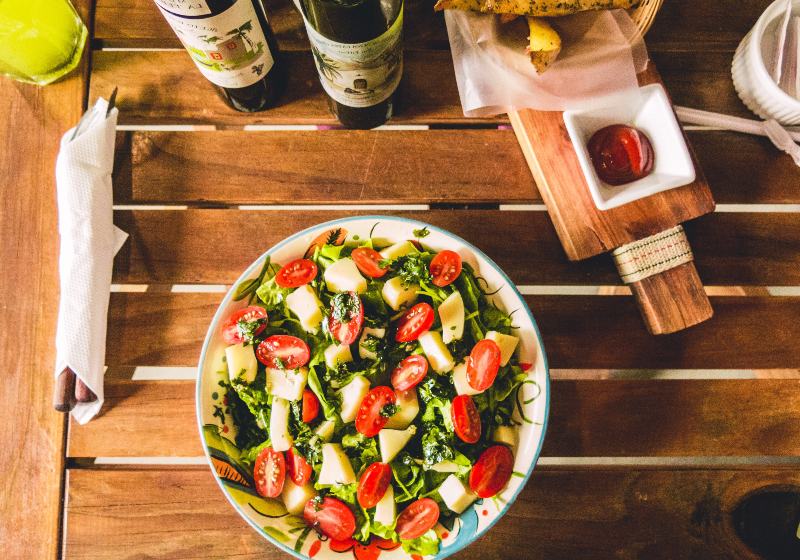
Since the Mediterranean diet focuses on whole grains, fruits, and vegetables, you may create different flavorful and hearty breakfasts.
To help you with your planning, here's a sample breakfast menu for a week:
Sunday: Bagel with Vegetables and Hummus

When you combine plant-based protein, such as hummus, and whole-grain bagel, you'll be able to create a filling and healthy breakfast. You may also put some cucumber slices to add texture, flavor, and nutrients.
Monday: Yogurt with Oats and Strawberries

Yogurt with oats and strawberries is a high-protein breakfast.
Opt for Greek yogurt since it contains more protein than the regular one. What's more, yogurt also contains probiotics, which are live bacteria that are good for your bodily functions.
Tuesday: Toast with Banana and Peanut Butter

Use whole-grain bread, as it's filled with more vitamins and fiber compared with white bread. It can also make you feel full longer, which can help you avoid munching on those mid-morning snacks.
In addition, banana offers potassium, while peanut butter provides healthy fats.
Wednesday: Bean Spread and Greens on English Muffin

Pile hearty toppings on your English muffin to make this leisurely Mediterranean breakfast.
You may add vegetables, like spinach, then smear some bean spread on the bread. Finally, you may put either white-bean or black-bean dip to pull all the ingredients together.
Thursday: Almonds and Almond Butter
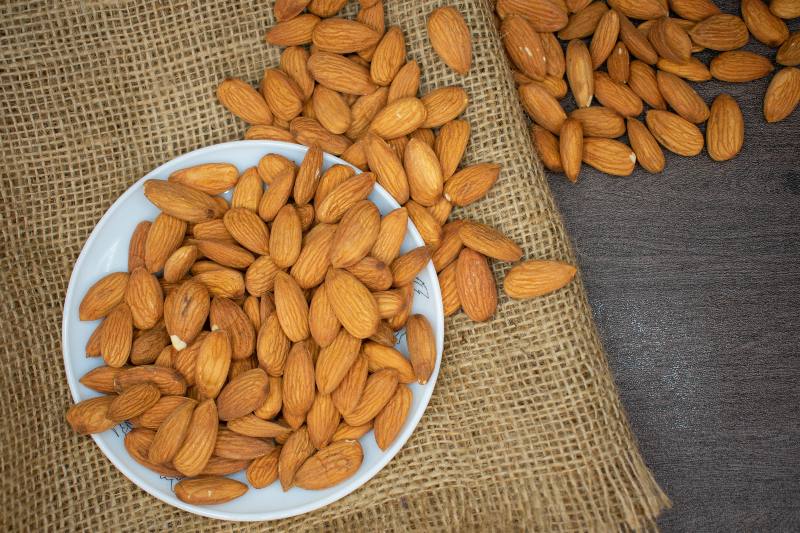
Almonds are a famous ingredient in Mediterranean cuisine because this tree nut is native to Mediterranean countries.
Almonds make for a great breakfast, as they can boost your energy. In addition, they are rich in healthy fats, protein, and fiber.
You may add sliced almonds to your granola, ricotta, cereals, or oatmeals. Meanwhile, almond butter is a perfect spread on fruits, pancakes, and waffles.
Friday: Eggs
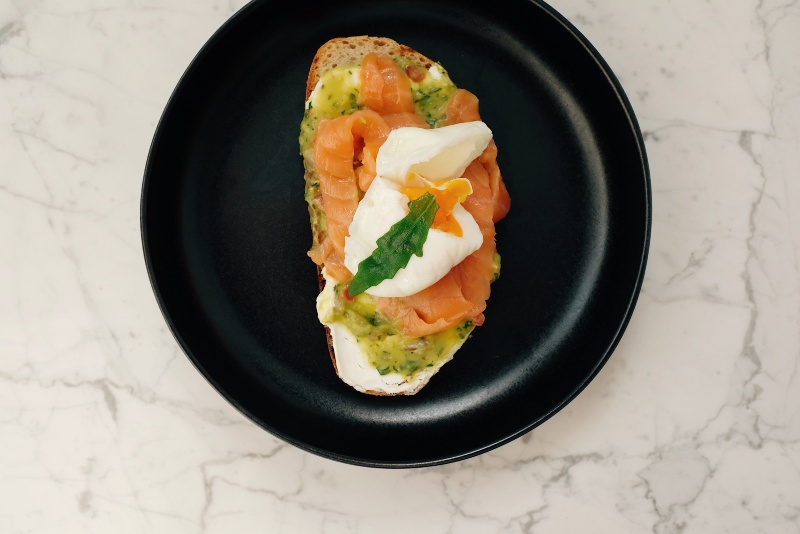
Eggs are one of the most versatile foods on the planet.
You may boil or fry them, but you should poach them for the Mediterranean diet. Then, top them on a smoked-salmon toast. You may also scramble them together with tomatoes and cheese.
Pro Tip: Eat the egg yolks. This part of eggs is full of fats that help you feel full longer. It also contains choline, an essential compound for your brain health.
Saturday: Avocados
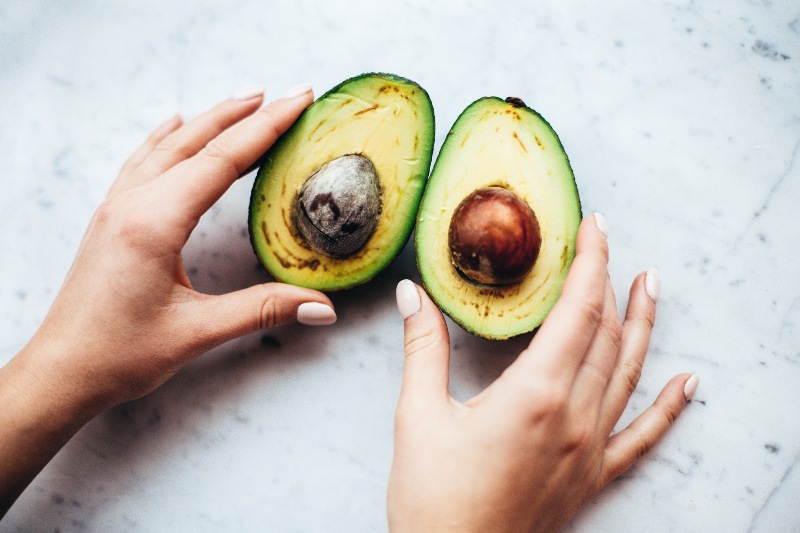
Avocados may not be native to the Mediterranean countries like almonds, but they provide fiber and healthy or monounsaturated fats. This type of fat is beneficial for your heart and can help you feel full. It can also help you maintain normal blood glucose levels.
You may either eat avocado as it is or add it to your oatmeals or smoothies.
What Are the Cons of the Mediterranean Diet?
In any diet, there can be a few drawbacks and challenges.
1. Some Dietary Restrictions May Be Difficult

The Mediterranean diet lessens your sugar and red meat intake. However, practicing this diet can be a challenge, particularly to individuals who are used to the typical Western diet, including processed foods and added sugar.
Pro Tip: Instead of red meat, add unprocessed and lean meats to your diet. You may choose brisket half flat, flank, or top round. But keep in mind to still consume them in small servings.
2. There Are No Specific Guidelines

The Mediterranean diet is unlike other types of diet. It doesn't have a structured eating pattern.
You don't have to count your calorie intake, monitor your nutrients, and follow a specific food list when you follow this diet. For these reasons, people who prefer a structured meal plan may find the Mediterranean diet a bit challenging.
Pro Tip: To help you stick with the Mediterranean, set your daily calorie goal. Then, select your meals based on those allowed in this diet.
3. Preparation May Take a Lot of Time

Of course, reheating foods and buying fast food would save you more time. However, since processed foods aren't allowed in the Mediterranean diet, you have to spend your time shopping, preparing, and cooking using whole ingredients.
4. It Allows Alcohol Consumption

The Mediterranean diet lets you safely enjoy alcohol, specifically wine. However, some people are having doubts if this intake is beneficial.
Yes, drinking (in moderation) can benefit your heart and circulatory system. But it should be a part of a balanced diet paired with regular exercise.
According to the Centers for Disease Control and Prevention (CDC), moderate drinking is equivalent to one glass per day for women and two drinks (at most) for men.
However, alcohol may pose some risks, especially when you couple it with an unhealthy diet and smoking.
Remember–you don't have to necessarily drink wine to see the benefits of the Mediterranean diet.
5. Some Ingredients May Be Expensive
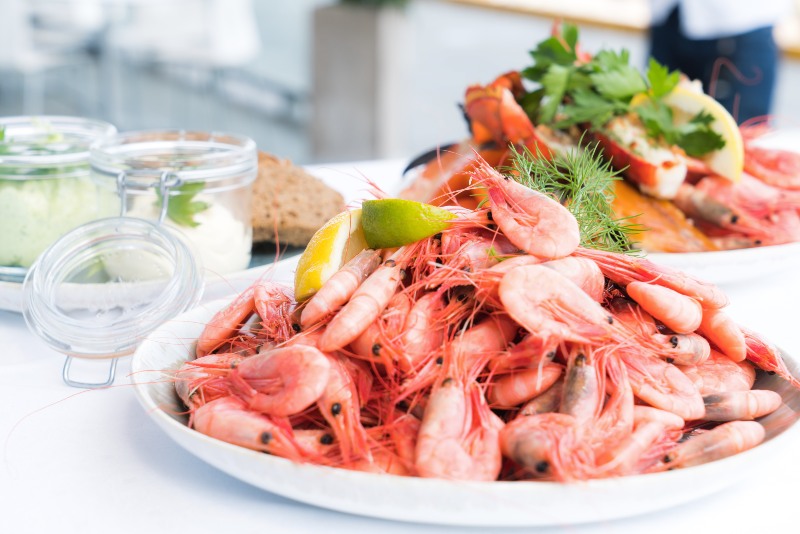
You may find that some foods in the Mediterranean diet are high-priced, such as olive oil, seeds, nuts, and incredibly fresh seafood. Seafood tends to be more costly compared with other proteins.
Pro Tip: You may buy fishes that are on sale in your local grocery store. Alternatively, you may purchase canned fish. That's a more cost-efficient option.
Check out this video by Critical Bench Compound to learn more about the benefits of the Mediterranean diet:
There's no strict meal plan when it comes to the Mediterranean diet. As long as you're eating plant-based foods (and not so much animal products), you're good to go!
However, keep in mind that these serve as general guidelines only. You may still modify them based on your preferences and dietary requirements.
It's still best to consult your dietitian or doctor to determine if the Mediterranean diet is suitable for your health.
What else do you love about the Mediterranean diet? Please share your thoughts with us in the comment section below!
Up Next:
Trending
Best Multivitamin for Men | Top 10 Best Multivitamins for Men 2022
Tongue Color | 7 Scary Tongue Color Meanings
Get Updates
SIGN UP FOR OUR NEWSLETTER TODAY


Best Multivitamin for Men | Top 10 Best Multivitamins for Men 2022

